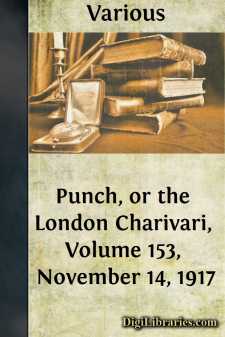Categories
- Antiques & Collectibles 13
- Architecture 36
- Art 48
- Bibles 22
- Biography & Autobiography 816
- Body, Mind & Spirit 145
- Business & Economics 28
- Children's Books 17
- Children's Fiction 14
- Computers 4
- Cooking 94
- Crafts & Hobbies 4
- Drama 346
- Education 58
- Family & Relationships 59
- Fiction 11834
- Foreign Language Study 3
- Games 19
- Gardening 17
- Health & Fitness 34
- History 1378
- House & Home 1
- Humor 147
- Juvenile Fiction 1873
- Juvenile Nonfiction 202
- Language Arts & Disciplines 89
- Law 16
- Literary Collections 686
- Literary Criticism 179
- Mathematics 13
- Medical 41
- Music 40
- Nature 179
- Non-Classifiable 1768
- Performing Arts 7
- Periodicals 1453
- Philosophy 66
- Photography 2
- Poetry 897
- Political Science 203
- Psychology 45
- Reference 154
- Religion 516
- Science 126
- Self-Help 85
- Social Science 82
- Sports & Recreation 34
- Study Aids 3
- Technology & Engineering 59
- Transportation 23
- Travel 463
- True Crime 29
Our website is made possible by displaying online advertisements to our visitors.
Please consider supporting us by disabling your ad blocker.
Punch, or the London Charivari, Volume 153, November 14, 1917
by: Various
Categories:
Description:
Excerpt
THE SUGAR FIEND.
"I will have a cup of tea," I said to the waitress, "China if possible; and please don't forget the sugar."
"Yes, and what will you eat with I it?" she asked.
"What you please," I replied; "it is all horrible."
I do not take kindly to war-time teas. My idea of a tea is several cups of the best China, with three large lumps of sugar in each, and half-a-dozen fancy-cakes with icing sugar all over them and cream in the middle, and just a few cucumber sandwiches for the finish. (This does sound humorous, no doubt, but I seek no credit for it. Humour used to depend upon a sense of proportion. It now depends upon memory. The funniest man in England at the present moment is the man who has the most accurate memory for the things he was doing in the early summer of 1914).
The loss of the cakes I could bear stoically enough if they would leave my tea alone, or rather if they would allow me a reasonable amount of sugar for it. However, we are an adaptable people and there are ways in which even the sugar paper-dish menace can be met. My own plan, here offered freely to all my fellow-sufferers, provides an admirable epitome of War and Peace. The sugar allowance being about half what it ought to be, I take half of the cup unsweetened, thus tasting the bitterness of war, and then I put in the sugar and bask in the sunshine of peace.
On this particular occasion peace was on the point of being declared when I found my attention irresistibly compelled by the man sitting opposite to me, the only other occupant of my table. At first I thought of asking him not to stare at me so rudely, and then I found that he was not looking at me but over my shoulder at some object at the end of the room. I can resist the appeal of three hundred people gazing into the sky at the same moment, but the intense concentration of this man was too much for me. I turned round. Seeing nothing unusual I turned back again, but it was too late. My sugar had gone! No trace of it anywhere, except in the bubbles that winked suspiciously on the surface of the miscreant's tea.
His face did not belong to any of the known criminal types. It was a pale, dreamy, garden-suburb sort of face—a face you couldn't possibly give in charge, except, perhaps, under the Military Service Acts.
"Do you know," I said to him, "that you have just committed one of the most terrible offences open to civilised mankind—a crime even worse (Heaven help me if I exaggerate) than trampling on an allotment?"
"Oh, I'm sorry!" he replied, waking from his dream. "Did you want that sugar? You know, you seemed to be getting on very well without it."
As I could not believe him to be beyond the reach of pity, I explained my method to him, describing as harrowingly as I could the joy of those first few moments after the declaration of peace. I suggested to him that he might sometimes find it useful himself, if ever he should be compelled to sit at an unoccupied table. ("Touché," he murmured, raising his hat). "And now," I concluded, "as I have told you my system, perhaps you will tell me yours—not for imitation, but for avoidance."
"There is very little to tell," he replied sorrowfully, "but it is tragic enough....












